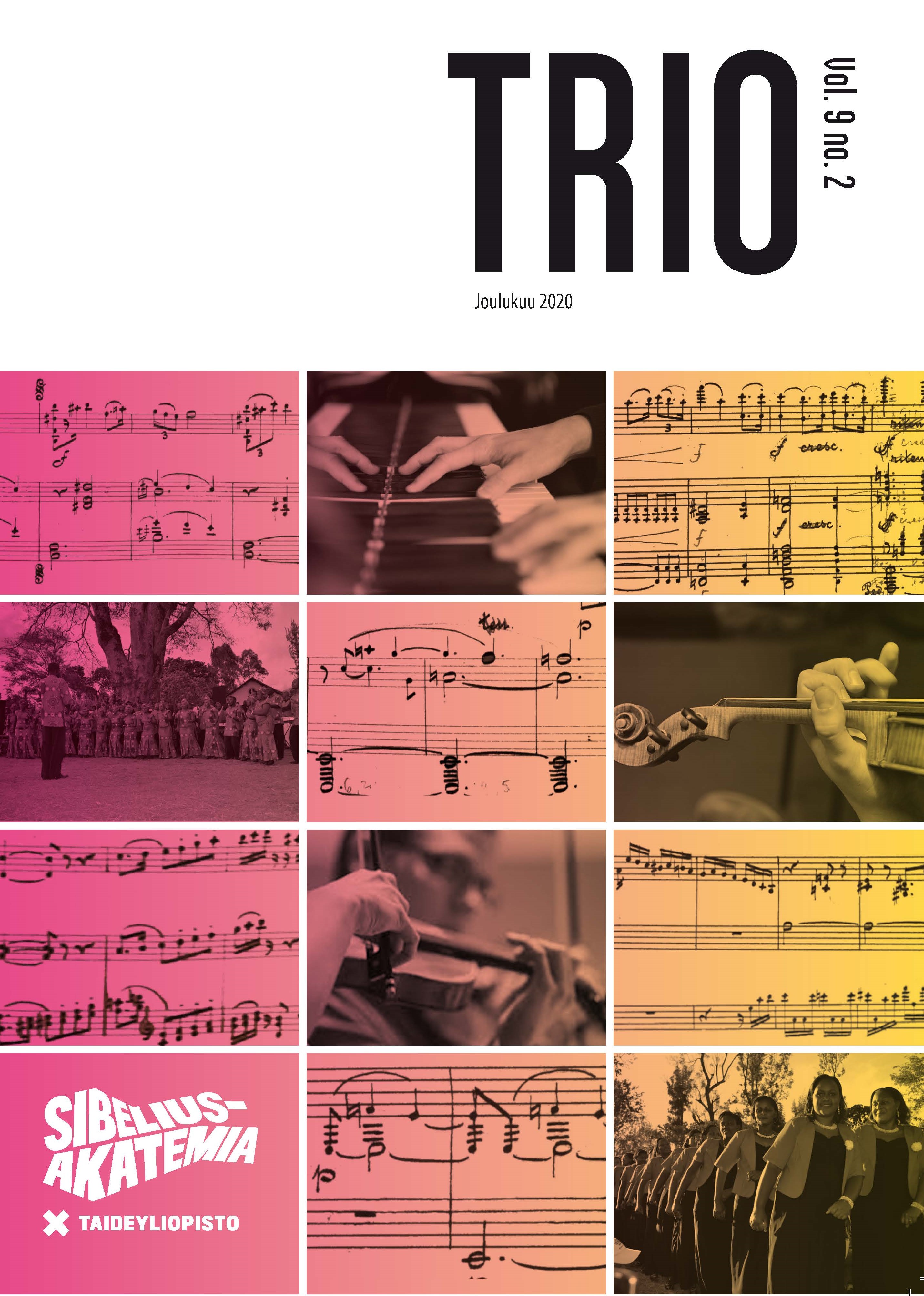Työtä ja työttömyyttä. Elokuvateatterien muusikot 1930-luvun vaihteen Turussa
Avainsanat:
elokuvateatterit, muusikot, 1930-luvun alku, Suomi, Turku, työttömyysAbstrakti
Playing accompanying music for silent films was one of the most important sources of income for musicians in the late 1920s. This practice ceased to exist after the arrival of the sound film, and in Finland approximately three-hundred musicians faced unemployment. In Turku, for example, just before the changeover there were nine cinemas with approximately forty musicians playing for silent films, mainly on string instruments and piano. This article deals with how these musicians were understood as a group of professional performers, and how they survived a professional change that was made even more harsh by the concurrent world-wide economic crisis. The results show that the musicians who played this light classical music became a group that was forgotten both by the art music field and the emerging industry of popular music. New job opportunities were, however, found in cafeterias and restaurants. This became easier due to the tightening of legislation regarding foreign workers in 1930. The removal of the strict licensing rules in 1932 and the end of the economic depression also helped the situation.





